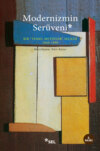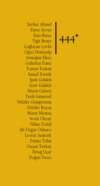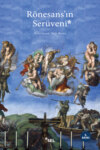Kitabı oku: «Dix contes modernes des meilleurs auteurs du jour», sayfa 7
L'HISTOIRE LA PLUS DROLE
I am at loss to tell the funniest story of my whole life; but going back over the current of my recollections I find one, which, perhaps, is of no great value.
I had taken part in the siege of Paris when I was scarcely twenty-three years old and I was a strong and well-built fellow; I was very proud of my light beard, but I was humiliated at the learning of our enemies. We Frenchmen spoke scarcely a word of German, while they spoke our language very well, in spite of their German accent. When the war was finished, my first thought was to learn German.
I had studied English more or less at the high school, and I spoke it fairly well, but I have no need to tell you that the language of Goethe was a dead letter to me. Nevertheless I began to study the best method that I could find, and I took lessons from a famous teacher, and after four months I commenced to feel the need of going to Germany. A friend of mine gave me the address of a boys' boarding school at Hanover, where the purest German is spoken. They assured me that the table was good and that the teacher was the best possible. Therefore I started, and arrived at the school on a fine May morning. Through the open door I saw several small boys in the yard, who were spinning tops and playing marbles and all sorts of children's games. The oldest of them was not more than thirteen years of age, and the youngest was about seven.
When I told Dr. Davisson my name he looked me all over, made a gesture of surprise, and finally said: "What! Mr. X recommended you to come to my school? Don't you see that this is a boarding school for small boys? Your friend, when he wrote me about you, neglected to tell me your age."
I did not know what to say, but remembering that I was all alone in that city, I thought I might learn German with the doctor. I said, holding out my hand to him: "My baggage is in the carriage, and if I promised you to behave well would you take me all the same?" "We can at least try," answered he.
The desks were too low for me, the bed in the dormitory was too short, but I was bound not to set a bad example, so I remained four months with the doctor. I was in the highest class, and I made lots of progress; therefore I was rewarded for my trouble, and when I left the school I spoke German very well.
LA CHARGE DES MORTS
THE battle had lasted all day, and at night it was still undecided; it was necessary to make a charge on two thousand Turks with a battery of artillery, otherwise the Russians could not continue their forward march on Plevna. It was a difficult affair, for the Turks were afraid of nothing; but the Russian general, who knew well all this, decided to send against them his last and best regiment. To their commander he said: "Occupy the enemy's position over there with your men. They are four to one of you, and many of you will find a sure death there. If you are successful, ring the church bell, and I shall thus know that the Russian army is saved." The commander, in spite of his gentle air, was a good soldier; he answered: "I shall take the city."
The horses of the Russians reared as the bullets rained about them; it was frightful to hear the noise of the horses galloping at the top of their speed in order to cross the ravine; the soldiers did not utter a single cry, in accordance with the orders of the commander; on all sides the men fell, and the shock was awful. The Turks retreated a little and finally took a better station a mile from the city, in order to use their artillery. Almost all the Russians had been killed, and, reassembling his men, the commander found that he had but eighty left; the fate of the entire Russian army depended upon him, and nevertheless the Turks were not beaten. The horses that had lost their riders were well trained; they grouped themselves together, and it was easy to collect them. Then a thought entered the commander's head; he ordered the dead riders to be tied to their horses; this was a terrible task for the few soldiers who remained; they asked each other if their commander had become mad. Then Serge put himself once more at the head of his squadron, composed of a few living soldiers and of many dead ones. He gave the command to charge. The Turks, who thought that their enemy had been conquered, were greatly troubled by this new attack; but when, at last, they saw that the Russian cavalry was an army of ghosts, as it seemed, they turned and fled. The day was won; but only a few horsemen remained. The bell of the village church was rung. The commanding general of the Russian army arrived; by the devotion of that regiment the victory was assured to the Russians.
LE PETIT HOMME ROUGE
THE queen, Marie Antoinette, had left the palace of Versailles on a dark, rainy day, and had come to the Tuileries with the king and the dauphin. There they saw that awful figure which he who knows the history of France cannot mistake. The legend relates that when the monarchy is in danger, a little man, clothed in red, wanders around the halls of the palace; and it is a fact, for many people have seen him. On arriving, the royal family found that the apartments had not been warmed, and that everything was in disorder. Accustomed to the luxury of Versailles, the dauphin was frightened by the confusion, and he murmured: "These rooms are very ugly, mamma." The servants had hastily prepared the beds, and the dauphin went to bed and soon fell asleep. The great king Louis XIV had slept in those rooms, and the queen said rightly that one ought not to be more fastidious than he. Marie Antoinette feared that an assassin might be lurking in the dark apartments, so she called one of her maids of honor and together they went through the rooms. The queen gave a candlestick to her friend, and took one herself. In the direction of the marshals' hall there was nothing to fear, for the Swiss guards were encamped there; it was a magnificent moonlight night, but the queen's fingers trembled a little. She was not afraid, but during her short stays in Paris she had never been so far in the palace. She gave a glance at the great trees and at the Seine, which was visible through the windows. They opened the door which leads into the Louvre, and a shudder seized both the women as they thought of the forbidding legend of the ghosts which stalked through the palace. The key did not turn easily in the lock, but when the door was opened a gust of wind almost extinguished the candles. The darkness was terrifying, and the queen said: "If they had placed a guard here he could tell us to what point this corridor can take us. But there are no guards, so let us see; it is not necessary to call the guards." They wandered about some time in the old Gothic halls; finally they stopped, and the queen said: "This is the old palace." The maid heard a slight noise, and on turning around she saw a strange form, clad in the manner of a man of the fifteenth century; he was dressed in red. The ladies could not restrain a cry, and hearing this the form disappeared all of a sudden. They remained motionless for several minutes. Then the queen said: "Heaven wanted to warn me of the danger which threatens the monarchy. Let us go back. For myself, I am not afraid, but the king – they will kill him." And they returned to the room where the child was sleeping. The little red man has not been seen since.
LA BATAILLE DE FRŒSCHWILLER
THE general had set up his headquarters in a little house which resembled a thatched-roof-hut. He was extremely tired, and he threw himself on the bed without undressing and fell asleep. Suddenly in the distance we heard the galloping of a horse; soon an aide of the commanding general appeared, crying out: "Please awaken the general; I have orders for him."
Our general soon got up and read the dispatches by the light of a lantern which a soldier held, motionless, at a few steps from his officer. It was impossible to know the meaning of the orders from the general's expression as he read them. Soon, however, he turned to us and said: "My troops will give battle to the enemy to-morrow morning, if I am not mistaken. The news which I have received will force us to move forward immediately."
He called his officers and gave his orders, some verbal, others written; the map of the country was under his eyes, and he spoke in a low voice with several officers. Then the drums beat, and in less than an hour our division had folded its tents, eaten its morning soup, and had arrived at the place where it was to go. This time the general was not mistaken; we were going to be present at our first battle. Five minutes afterwards there was a lively cannonade, and the battle had commenced. I cannot give you the details of that memorable day; I relate a few incidents as I remember them. We received the order to advance; the noise of the guns deafened our ears; the air was saturated with the odor of powder; it was like a burning furnace when we charged over the plain; we passed the fire of the enemy's batteries in the midst of all this noise. I heard some one cry "Captain!" At the foot of an oak tree one of my comrades was wounded and dying. His terrible suffering hindered him from speaking; his only question was, "Is the battle lost or won?"
The bullets were whistling about our ears; we were going to charge with fixed bayonets. It was a hand-to-hand struggle, and men were falling on all sides, but we were forced to beat a retreat.
* * *
It was about twelve o'clock; I drank a swallow of water while waiting for new orders. It would be difficult for you to appreciate my feelings. I saw by my field-glass that the Germans were much more numerous than the French. Then came other hasty orders; we were tired to death, but the enemy were fresh. Everybody was very anxious. I approached the general; while I was speaking with him a shell burst at our feet, a bit of it struck me in the face, and my horse reared and set off at a great gallop in spite of my efforts to hold him back.
* * *
I passed over a great distance in a very few minutes. What could the French army do against so many men and cannon? Most of our higher officers had disappeared. Our clothes were covered with mud and dust, our faces were blackened by the powder; nevertheless the order came again: "You must charge once more!" "I have already lost half of my men," was the answer. No matter! We must begin over again; the ground shakes under us as we advance.
* * *
The shock is terrible. An officer fires straight at me, but I cut off his arm. I see the swords gleam all about me; three troopers come to my rescue. "Come, captain," they say, "the battle is lost. We are ordered to sound the retreat." Several officers of the general's staff repeat the command, and the day is lost.
LE MAUVAIS ZOUAVE
THE blacksmith usually put out his fire as soon as the sun set. He liked to sit before his door and see his apprentices go by, and thus rest himself after the burden of the day. But this day he came home directly and sat down at table. He was evidently in a very bad humor; his wife looked at him without daring to ask him anything. She had a nice supper on the white tablecloth; a good salad and some cream radishes. The blacksmith had no appetite, and at last he burst out: "Oh! what rascals they are, those young French soldiers whom I have seen with the Prussians this morning; they are not true Frenchmen, otherwise they would not have left their regiment and chosen to be Prussians. It is entirely their fault, and I don't believe that they are at all homesick; I can't understand why they come back. They must be cowards; I hope that our son will not be capable of such an infamy, for if it were true, I should rather kill him with my sword. But what's the good of getting excited? Our boy was in the war against the Germans." With that he began to laugh, and this idea put him in good humor again. He dined merrily, and then went to the tavern to pass a couple of hours. His wife remained alone. She took up her work and began to mend the stockings, after putting the little children to bed. She thought of her son, who, before being a soldier, used to water the garden and care for the house. Suddenly the gate of the garden opened; as the dogs had not barked, she was sure that it was no robber who glided along the wall as though he was afraid of being seen. Yes! It was her boy who stood before her with a sunburned complexion. He had come back to his native village, deserting his post in the French army. She had not the courage to scold him, because he told her that the discipline was so hard, and he was always hungry and thirsty. Suddenly they heard some one walking in the garden, and the boy had only the time to hide behind the stove when his father entered. The old man saw the military cap on the table; he understood in a minute that his son was there. Furious, he ran for his sword and rushed toward the stove where the boy was hidden. The mother cried out: "Don't kill him! It is my fault, because I told him to come back." The blacksmith stopped, and then said: "Well, to-morrow we shall see what to do. Go to bed now." All night the mother remained near the bed of her child, because she was afraid of the father. The old man did not go to bed all night long; he walked up and down in the garden, thinking of what he was to do. The next morning he appeared before his wife and child, clad as if for travelling, with a large hat and a stout, iron-bound stick. "Come, get up," said he to his son. "Give me your uniform and take my clothes; since you have sacrificed your honor for love of your home, take this house and this garden. The blacksmith shop and everything else here belong to you. I am going to Algiers to pay the debt which you owe to France." It was in vain that the wife and child besought him to remain; he left the house without turning around, and remained five years in the army in place of his son.
UN MARIAGE
ALL the workingmen of the great city had put on their Sunday clothes; they were walking on the sidewalks and were talking together, when suddenly some one cried out: "Here is the wedding procession." My surprise was great when I saw at the other end of the street only the bridal pair and behind them four witnesses. I had supposed that this must be the wedding day of the owner of the factory, since the crowd was so great and was formed like two hedges on each side of the street. The couple smiled at their friends, and waved to them a friendly salute. The young man was leaning on the arm of the girl, and allowed himself to be guided by her. He carried his head high, and his eyes were fixed and glassy, and I saw that he was blind. After the couple had passed the door of the town hall I remained on the sidewalk, when a workingman whom I knew, an overseer in the factory, passed by. Together we entered a coffee house, and he told me the story of the couple: "The young fellow used to work in the great iron works; he was a model workman, and his comrades were very fond of him. One day there was an accident; a bit of iron entered his eye, and the ambulance was called to carry him to the hospital. He had to undergo a terrible operation, which did not succeed, for he lost both his eyes. His employer promised him a small pension, but in a short time the factory failed and all the workmen were without work. Of course the pension of the blind fellow stopped; the lawyers came and shut up the factory and took possession of all the account books. This was a hard blow for Jean; he was blind, sick, alone, and he was deprived of the small sum which assured to him his daily bread. We had to think it over, and at last, with the permission of the overseer, we built a little box at the entrance to the factory, where the blind man could sit and beg. It was no disgrace for him to beg, but he blushed with shame at the thought; in order not to be idle he made little objects of wire, which he sold. One day, however, during the terrible winter which followed, Jean fell sick and was forced to stay in bed. We placed a little collection box at his seat, but no one stopped to give pennies when it was so cold. There was a young girl near the attic where Jean was lying sick; she was touched by his misfortune, so she took her lace (she was a lace maker) and seated herself at the box. When any one passed she said: 'Don't forget the poor blind man.' Many people came to see her there, and she carried home her collection, in which there were not only the pennies of the workingmen, but also silver and gold pieces from richer people. She succeeded so well that she did the same thing the next day and all the following days, until Jean was finally cured of his sickness. You can easily guess the end of the story. Jean said to his comrades one day that he wanted to marry the generous lace maker, and he invited them all to his wedding. The marriage did not disarrange the daily work in the factory, because to-day is a holiday. The chief owner paid for the wedding dinner, and now you see why we are all here this morning. We wanted to prove our friendship for the poor blind fellow." As he finished speaking, the married couple left the town hall, and everybody cried out: "Long live the bride!"
POUR LE RUBAN
WHEN one lives in the country without working, one is sure to win the respect of all the village inhabitants. Although Olivier had only nine hundred francs income, yet he found this very true.
On arriving at Nançay, he remained very much by himself in the small room which he had rented in the village inn. From the very start everybody in Nançay had talked about him; those who patronized the inn asked: "Who on earth is that man?" "I don't know him very well," was the answer, "but he is an honest man, and he pays for his little room without trying to beat me down. He used to be a bookkeeper at the city hall in Paris, and they say that the government gives him a pension. Then, too, you see that he wears a ribbon in his buttonhole, and that proves that he is an honorable man." Some one asked again: "What is that decoration?" and an old man answered in an embarrassed voice, "Oh, I know! They give that to a man who has rescued the flag in battle." From that moment Olivier was famous in the village. When he entered the inn everybody stopped drinking and saluted him. He commenced to be puffed up by the respect by which he was greeted. The people, however, said that it was only his modesty. Thus he became a curiosity, and bicyclists as they passed the inn would ask to see M. Olivier, who had once rescued the flag. Everybody admired the hero, and a nobleman in the neighborhood sent for him and asked him for the story of his noble deed. M. Olivier, however, answered: "It is not worth while to tell the story of the affair. I only did my duty." A brave man does not like to talk about his heroic deeds. Thus, even at Paris, the story was known; only there, instead of repeating it as a legend, the nobleman told it as a true story to all his friends, saying: "It was the 37th dragoons, who were saved from death and destruction by the man whom you can see in flesh and blood if you will only promise to come and visit me at Nançay." It happened that the country was in the throes of a political election. Each candidate, in order to get more votes, promised to have M. Olivier decorated with the Cross of the Legion of Honor instead of the simple medal which he wore. No one thought of investigating the title of the old soldier to the decoration, until one day the Radical candidate made a little inquiry, and then he had posted a notice saying that M. Olivier was only a former policeman who had once pulled a drunken man away from the river. The man was only trying to drink a little water, but on a report of the circumstance the government granted Olivier the medal. This was too much for the inhabitants of Nançay; they asked to see Olivier, and one of them demanded, in a trembling voice, if it was true; and Olivier answered modestly: "Did I ever say the contrary?"










